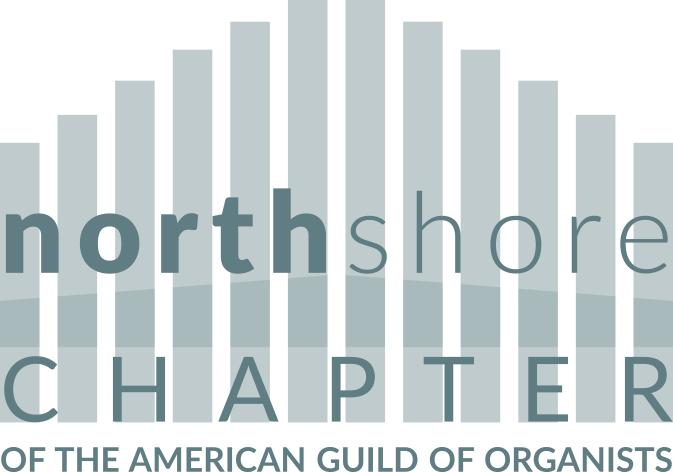
Andrea Handley
Frequently as organists, we find ourselves being made to feel as if we’re dinosaurs in the musical arena. This article will make you feel good about the future of our instrument. Statements such as: “The organ is probably in the best place it’s ever been”, “As an organist, you get to customize your instrument every time you play it”, and “What other instrument comes with its own building?” give you a feel for the fresh and positive perspective of our beloved instrument reflected in this article.
I’ve copied the text of the article here, but visit the website for the full article on sinfinimusic.com, which includes some entertaining videos. Enjoy!
Andrea Handley, Dean
Five Fantastic Reasons to Play the Organ
By Christina Kenny, posted on Sinfini Music (www.sinfinimusic.com) | 21 August 2015
- There’s probably never been a better time to play the organ
From its position at the forefront of the HIP revolution of the 1970s (that’s ‘historically informed performance’, btw) to the cutting edge collaborations of recent years, the organ – and its reputation – occupies an undeniably strong position within the classical and alt-classical landscapes right now. According to James McVinnie – who recently rose, bewigged and beskirted, through the stage at Glyndebourne as soloist in Handel’s Saul – the organ is ‘probably in the best place it ever has been’. ‘Organ playing itself’, he adds, ‘is also in an amazing place.’
His fellow Cambridge organ scholar alumnus, Stephen Farr, is similarly enthusiastic about the state of the contemporary organ scene (if, as he points out, such a wide-ranging variety of performance opportunities can be called a scene). ‘In some ways, the organ has shaken off its image of being an instrument that is quite often badly played,’ he says. ‘There’s a sense of the organ being taken more seriously as a concert instrument nowdays. I think other musicians, crucially, are more inclined these days to view really good organ playing as being on a par with really good playing of any instrument.’
- As an organist, you get to customise your instrument every time you play it
Unlike flautists, violinists and pianists (who either travel with their own instruments, or can reasonably expect to find one that looks vaguely familiar at the concert hall) organists work with instruments that vary wildly not only from from model to model, but from country to country. German organs, for example, were designed to support big congregations singing chorales, while in Catholic France, they were traditionally used as part of the liturgy, often in an improvisatory context. Meanwhile, English organs were developed to accompany choirs, as part of the Anglican choral tradition.
Wherever they find themselves playing, organists need time not only to learn the music, but how to play it on specific instruments. This involves working out the ‘registration’ or combination of organ stops they will use during the performance to modify the sound the organ makes during a single piece. Consider that a large organ can have well over 100 stops, and you’ll understand what an immense job choosing the registers can be.
Most concert programmes can be registered in three or four hours. But there are exceptions: Farr, for example, remembers the preparation that went into the premiere of Judith Bingham’s The Everlasting Crown in 2011. ‘I arranged to have two consecutive full nights with the Royal Albert Hall organ before the concert,’ he says, ‘and on the first night it took eight hours just to register the piece. Not practising it, mind you, just choosing the registers!’
And let’s not forget another huge element of each individual organ’s sound and identity, which lies totally separate to physical machinery: the space the instrument inhabits. ‘Whether you’re talking Westminster Abbey or a tiny little room, the room is a part of the instrument itself,’ says McVinnie. ‘And when you’re playing somewhere like St Paul’s Cathedral, it’s as if you’re playing a whole building.
‘It’s not like a piano in a concert hall, where the acoustic is the afterthought of the instrument that makes it sound even nicer. When you’re playing in huge acoustics, you have to take the room into consideration when you interpret and shape the music.’
- You have unfettered access to some of the world’s most incredible buildings
What other instrument comes with its own building? Unless you’re Cameron Carpenter (AKA the Liberace of the organ world, who commissioned his own International Touring Organ), you’re going to need a bigger case.
When it comes to practise, organists probably have the most bizarrely noctural rehearsal schedules of any classical musician. After all, buildings like churches, cathedrals and concert halls tend to be busy during the day (and anyway, even the most masochistic of organists wouldn’t want to inflict the trickier parts of a Messaien work on innocent bystanders, multiple times, in different registers).
Often, organists are allocated rehearsal slots ‘after hours’, practising long into the night and often into the morning while everyone else is asleep. ‘It’s an amazing privilege and an extraordinary experience to have the key to Westminster Abbey,’ says McVinnie, who held an assistant organist post there from 2008-11. ‘It’s crazy to be there by yourself in the dead of night, but you feel in a funny sort of way that you’re part of the fabric of the building.’
Farr, who recently pulled an all-nighter at London’s Royal Albert Hall, agrees. ‘It’s just a totally extraordinary experience,’ he says. ‘One of the most remarkable places I’ve ever rehearsed is at Notre Dame in Paris. You’re given two nights to practise. On the second night they have a system that records you playing the concert programme straight through. It then plays it back through speakers while you walk around the triforium in the dead of night, in complete darkness and silence. ‘Nobody gets to see buildings like that except an organist. No-one.’
- Organ repertoire isn’t just limited to Bach, you know
The words ‘organ recital’ may still strike fear into the hearts of the uninitiated, but, with a wealth of quality repertoire for the instrument in both solo and ensemble contexts, there’s really no need to fret. McVinnie, however, concedes that organ repertoire does tend to be more ‘eclectic’ than that of other instruments: ‘We have Bach as an amazing lifetime’s worth of musical exploration for the instrument,’ he says, ‘but we don’t have what pianists have – Mozart, Beethoven, Brahms, Chopin and Schubert and all of the other composers in the keyboard music canon.
‘Dare I say it, there just isn’t the same amount of quality music for the instrument, and that has to account for the lack of popularity of organ recitals. But that why it’s so, so important to programme well. When I’m putting together programmes, I try to make every single item an A-list piece that will grab people’s attention.’
So what makes a good programme? According to Farr, it’s repertoire conceived with the instrument’s particular qualities in mind: the beautiful and elegant music of Couperin, Bach and Messiaen, for example. ‘But there are also individual pieces by composers who I wish had written more for organ,’ he says. ‘Nielsen, Schoenberg, Frank Martin, Duruflé…’
- New music is being written for organ all the time
Farr, a contemporary music specialist who premiered a mammoth, seven-movement work by Judith Bingham at the 2011 Proms, enthuses about the plethora of contemporary classical composers currently writing for organ. ‘Quite a lot of serious, big-name composers are writing fantastic music for the organ these days,’ he says. ‘Judith Bingham, James MacMillan, Giles Swayne, Jonathan Harvey, Judith Weir, Peter Maxwell Davies… I could go on. Serious composers nowadays don’t disregard the instrument. There’s an influx of new music all the time.’
There’s gold in them there collaborations, too. A recent signing of hip Icelandic label Bedroom Community, McVinnie’s CV boasts a series of high-profile collaborations with musicians from Nico Muhly to Beth Orton, Sufjan Stevens to OneOhTrix Point Never.
‘There’s a great upsurge and interest in people writing for the organ, and I’m very lucky to have a huge list of people lined up to write pieces for me,’ he says. ‘And as a performer, it’s great to be able to tap into the audience base of people like [Arcade Fire’s] Richard Reed Parry and [The National’s] Bryce Dessner. From my point of view, it’s a very musical way of getting the instrument out to new audiences who don’t care about boundaries in music.’
Farr agrees that the future is bright for young organists who engage with different kinds of music and musicians. ‘Being an organist means acquiring new skills all the time,’ he says. ‘My advice to young players now would be to just say yes to everything and everyone, and don’t be too sniffy. Playing 12 chords for a piece by Vaughan Williams at the Proms one year got me my own concerto at the next. You never know where the next gig will take you.’
